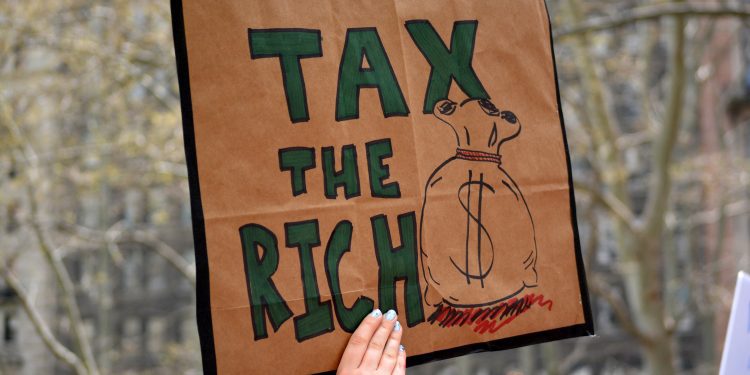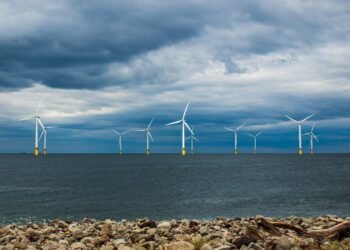As the climate crisis accelerates, the costs of inaction are scaling sky-high. Devastating wildfires, floods, and rising sea levels are inflicting a heavy financial burden on governments around the world.
Critics still object to wealth taxes because such levies discourage investment and result in capital flights. They refer to numerous past experiences where the wealth tax has failed to raise expected revenues, as in France, which repealed the “solidarity tax on wealth.”
Why We Should Care About a Wealth Tax
In addition to the stark economic issues that wealth inequality presents, there is also an environmental base for the argument. The wealthiest are responsible for a disproportionate amount of global carbon emissions through their high-consumption lifestyles, private jets, and investments in polluting industries.
Proponents say that a wealth tax could hold the wealthy accountable for their environmental impact, while raising substantial funds to invest in green technologies, renewable energy, and climate resilience. The wealth tax to take action on climate change may have a deep impact; it can revolutionize environmental policy and the distribution of wealth worldwide. The effect of such a tax could not only raise substantial funds for climate initiatives but also tackle the disproportionate environmental damage caused by the ultra-wealthy, thus probably opening a path toward a more just and sustainable future. It could set a precedent in linking economic and environmental policies, inspiring similar measures around the world while readjusting the landscape of climate finance and social equity.
Global Examples: Successes and Lessons Learnt
Countries such as Norway and Sweden have been quite successful in imposing wealth taxes. Their respective models are often referred to when debates on the ultra-wealthy and how to tax them without deterring economic growth are engaged. They have been able to utilize this wealth to benefit one another by engaging in public services and, at times, funding environmental projects.
Nevertheless, critics say their results might not be replicable in larger and more diverse economies: the populations in Scandinavian countries might be small, with much better levels of social trust and welfare systems already established. Some economists further argue that these wealth taxes indirectly contributed to slower economic growth and lower entrepreneurship in these countries than would otherwise have been possible. We also see examples of how things can turn out wrong with a wealth tax.
Challenges: Implementation, Evasion, and Fairness
The benefits of a wealth tax are obvious: billions in revenue could be channeled into clean energy, reforestation, and environmental protection. The challenges, however, are similarly huge.
The most pervasive argument put forward is one of tax evasion: the rich have a long list of financial tools and overseas accounts with which to hide their assets from such taxation. Although difficult to implement and sustain, innovative taxation models need to be explored in an attempt to engage in global environmental concerns and sustainable development. In the unlikely event that a wealth tax was used to finance an environmental program, strong measures against tax evasion would be a prerequisite for its success. Such measures would include coordinated international efforts, a lift of banking secrecy, and tight control over foreign accounts. Lastly, such a tax must, above all, be fair; it should not burden some industries or persons while exempting others from fulfilling their obligations.
A Path Forward: Unlocking Green Potential
If well-designed, wealth taxes could unlock new funding for climate action. Progressive wealth taxes – in other words, the larger the fortune, the higher the rate – could ensure fairness in the tax burden. Giving further incentives for green investments would also align the incentives of the wealthy with global climate objectives. Not only is this a progressive approach to addressing wealth inequality but it also creates avenues for channeling resources to urgent environmental priorities. Critics also claim that the wealth tax would dull economic growth and innovation because it may generally discourage investments and specifically entrepreneurship. They further indicate that any resulting risk of capital flight could be reduced by wealthy individuals liquefying their assets and transferring these to more tax-friendly countries. The opponents further argue that the administrative costs and complications of implementation and enforcement could offset assumed benefits for funding climate action.
View the full article here












